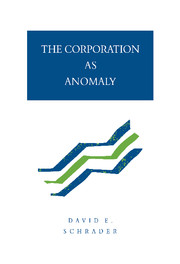Book contents
- Frontmatter
- Contents
- Preface
- Introduction
- 1 The hidden change in economic theory
- 2 Four views of scientific change
- 3 A glance at the history of economic theory
- 4 Agreement and disagreement within the tradition
- 5 Theories of the firm
- 6 Confusions and problems with the marginalist view
- 7 The shape of the large managerial corporation
- 8 The theoretical impact of a better theory of the firm
- Notes
- Bibliography
- Index
2 - Four views of scientific change
Published online by Cambridge University Press: 10 December 2009
- Frontmatter
- Contents
- Preface
- Introduction
- 1 The hidden change in economic theory
- 2 Four views of scientific change
- 3 A glance at the history of economic theory
- 4 Agreement and disagreement within the tradition
- 5 Theories of the firm
- 6 Confusions and problems with the marginalist view
- 7 The shape of the large managerial corporation
- 8 The theoretical impact of a better theory of the firm
- Notes
- Bibliography
- Index
Summary
In the last chapter I argued that the development of the modern theory of the firm constituted a major change in face of the economic tradition dating back to Adam Smith's Wealth of Nations. In the remainder of this book I shall be centrally concerned to do three things: (1) to set the change in economic theory that I identified in Chapter 1 into the broader context of the development of economic theory since the time of Smith; (2) to examine the major theoretical alternatives to the traditional marginalist theory of the firm and argue that taken simply as a theory of the firm, the marginalist theory suffers from significant weaknesses; and (3) to argue that the need for economists to adhere to a preferable theory of the firm also places pressure on economic science to develop a somewhat different comprehensive theory of the economy as a whole than that which has dominated the tradition since Smith.
The central argument that I shall develop depends crucially on my being able to apply the general kinds of analytical frameworks that have been developed for the analysis of scientific change to the analysis of change in economic theory. I do not regard this as a very controversial application. There is little to dispute in the claim that economic theory has, over the past two centuries, been developed to a high level of systematicity. Likewise, it is hardly controversial to claim that there has been a course of theoretical changes and modifications in economic theory over that same time.
- Type
- Chapter
- Information
- The Corporation as Anomaly , pp. 25 - 44Publisher: Cambridge University PressPrint publication year: 1993



